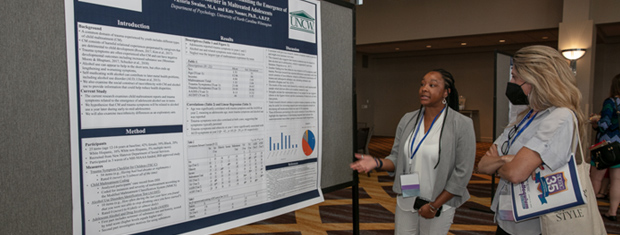




The APSAC Advisor is a peer reviewed quarterly news journal for professionals in the field of child abuse and neglect.
The APSAC Advisor provides succinct, data-based, practice-oriented articles that keep interdisciplinary professionals
informed of the latest developments in policy and practice the field of child maltreatment. It is designed to highlight
best practices in the field and publish original articles and current information about child maltreatment for professionals
from a variety of backgrounds including medicine, law, law enforcement, social work, child protective services, psychology,
public health and prevention in the U.S.
 If you wish to learn more about submitting an article to the Advisor, please click here.
If you wish to learn more about submitting an article to the Advisor, please click here.
This library contains Advisor issues dating back to the first issue in 1988. The most recent issue appears at the top.
Scroll down to select past issues by year and issue number. Once a publication appears in the box, you
can use the Enlarge button to open the document in a new window or tab (depending on how your browser is set up).
This will allow you to view the document with larger print.
To print a document, first use the Enlarge button to open the document in a new window or tab. Then use your browser's Print command.
To return here from a new tab, close the tab. To return from a new window, click your browser's Back button.
In the listing below, click on a year and issue number to see the articles in that publication.
2006 Number 4
At Issue: Bridge Over a Philosophical Divide
Each new generation of scientists debates the role that science should play in society (van der Vink, 1997; Myers, 1999; Ehrlich, 2003). This debate is often reduced to a passionate conflict between two apparently irreconcilable philosophical views. The ‘strictly objective’ scientists shun civic engagement out of concern that scientists remain objective and free from external influence (Wooster, 1998; Hsu and Agoramoorthy, 2004), while ‘citizen’ scientists encourage civic engagement to ensure that society can benefit from scientific understanding (Bazzaz et al, 1998; Ehrlich, 2003; Terborgh, 2004)
Constructive Uses of Risk: The Promise and Peril of Decision-Making Systems in Child Welfare
Child Protective Services (CPS) agencies are charged with investigating allegations of child maltreatment and, finding that such maltreatment has occurred or is likely to occur in the future, must choose a course of action that protects children from future harm. The former task requires an accurate assessment of the risk of future maltreatment, and the latter requires a comprehensive assessment of family dynamics and functioning (Shlonsky & Wagner, 2005; Hughes & Rycus, 2003).
The purpose of Journal Highlights is to alert readers to current literature on child abuse. Selected articles from journals representing the variety of disciplines reflected in APSAC's membership are presented in the form of an annotated bibliography.
APSAC Advisor 18(4): Full issue